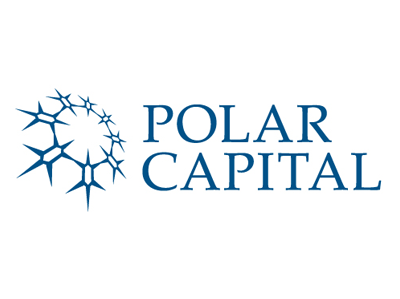Polar Capital Technology Trust (PCT) has announced its interim report for the six months to 31 October 2023. NAV total return for the period was 12.1%, trailing the benchmark return of 12.8% (The Dow Jones Global Technology Index). Shares were up 10.6%. The company’s discount stood at 14.5% at the end of the period.
Commenting on the performance, managers Ben Rogoff and Ali Unwin noted:
“The Trust modestly underperformed its benchmark, with the net asset value (NAV) per share increasing by +12.1% during the first half versus +12.8% for the sterling-adjusted Dow Jones Global Technology Index. While growth outperformed value during the period, this largely reflected the remarkable performance of a select group of US mega-cap stocks which delivered strong positive returns in contrast with moribund or even negative returns in other geographies and market-cap tiers. Although the Trust benefited from large absolute positions in a number of these stocks, it remains structurally underweight in large-caps in favour of growthier small and mid-caps. We were pleased the Trust delivered top quartile performance versus our Lipper peer group for the fiscal half year and calendar year to date, although this undoubtedly speaks to a challenging environment for most active managers against a cap-weighted benchmark firing on most cylinders. Beyond the divergence in large and small-cap stocks, the most significant detractor to relative performance was our average cash position of 5.5% and NDX (NASDAQ 100) put options which cost 56bps and 24bps respectively. However, stock selection was positive in both the US and Europe – helped by significant exposure to AI-related names – despite pronounced outperformance of mega-cap stocks.”
Regarding the outlook, they continued:
“Twelve months ago, we argued that the current inflationary period might not represent a change in investment regime as others were arguing at the time. Instead, we suggested it might be akin to the immediate post-WW2 years – a Covid rather than war-related disequilibrium resolvable with time and enough policymaker ‘medicine’. With inflation heading lower without yet taking the global economy with it, the case for ‘immaculate disinflation’ looks stronger than it did last year. While debate remains about whether the rate tightening cycle is complete, the proverbial ‘wall of worry’ has shifted towards geopolitics and primary fiscal deficits, both of which could delimit policymaker latitude to deliver the monetary adjustments necessary to avoid a hard landing. We are hopeful that decisive US action in the eastern Mediterranean will prevent the Israel/Hamas conflict from broadening, while the Saudi/Iran divide makes a 1973 rerun meaningfully less likely.
“The case for renewed disinflation has also received a significant boost in the form of generative AI. We believe that after years of impressive gains in narrow fields, the recent advent of the transformer model is likely to prove the ‘Bessemer moment’ for AI. If so, we are likely to experience remarkable productivity gains over the coming years which may exert significant downward pressure on prices. Following the advent of cheap steel, thanks to Henry Bessemer, US prices fell on average by 4% per annum during the 1870s, a period known as the Great Deflation. However, what followed was a pronounced and prolonged rise in real wages so profound that it “gave birth to the middle class”. Today, policymakers are focused on stubbornly tight labour markets just as AI threatens to disrupt as many as 300 million jobs. While this could yet take the form of dystopic science fiction and even civilisational decline, remarkable early gains from GenAI and the broad applicability of this nascent GPT (general purpose technology) suggests to us that we might instead be on the cusp of the “best decade ever” for productivity growth.”
PCT : Double digit growth for PCT despite underperformance
